 Features
Features
"It's a family affair": South Asian clubbers share what the dancefloor means to them
Vee Pandey asks the attendees of Daytimers' Phonox takeover about the significance of club culture to London's South Asian diaspora
Despite London's reputation for diversity, it has always been a struggle for many in the South Asian community to find parties that feel authentic to them. No, a requisite drop of the much-rinsed ‘Mundian To Bach Ke’ by Panjabi MC does not count. However, as lockdown measures began to trickle away in Summer 2021 it felt like the tides were turning, and a Boiler Room takeover from label and collective Daytimers featuring Yung Singh, Gracie T, Chandè, Rohan Rakhit and Saachi, seemed to signal the shift. For some of us in the South Asian diaspora, it was first time we had seen anything like it; a group of South Asian DJs and artists playing club tunes to a crowd that represented their own heritage. Not just any club tunes either, but tracks full of cultural references that we have grown up listening to, pieces of music that we would listen to on our way to work or school, tracks that we always dreamed of hearing on a club soundsystem. It felt significant to see a crowd wearing sarees and sherwanis, grooving to house, jungle, Punjabi folk songs and Bollywood classics. Daytimers has been a catalyst to this growing movement.
Back in the '80s and '90s, it wasn’t just strict parents who prevented young South Asians from going out in the UK, it was pure racism where bouncers would simply deny Brown faces into their nightclubs. This fuelled the era of "daytime parties" - events thrown during the day so dancers could let loose along with their peers without families finding out. The Daytimers collective we see today has enabled young brown people to have that experience without having to feel out of place. An unspoken understanding of why it’s so important to have that representation in one room. The London based collective put up an event at Phonox earlier this month with NAINA, DEBONAIR, Almass, Serjevan and Zaleel taking over the decks.
Read this next: How daytime raves introduced clubbing to a generation of British South Asians
We chatted to some party-goers about what clubbing culture means to them...
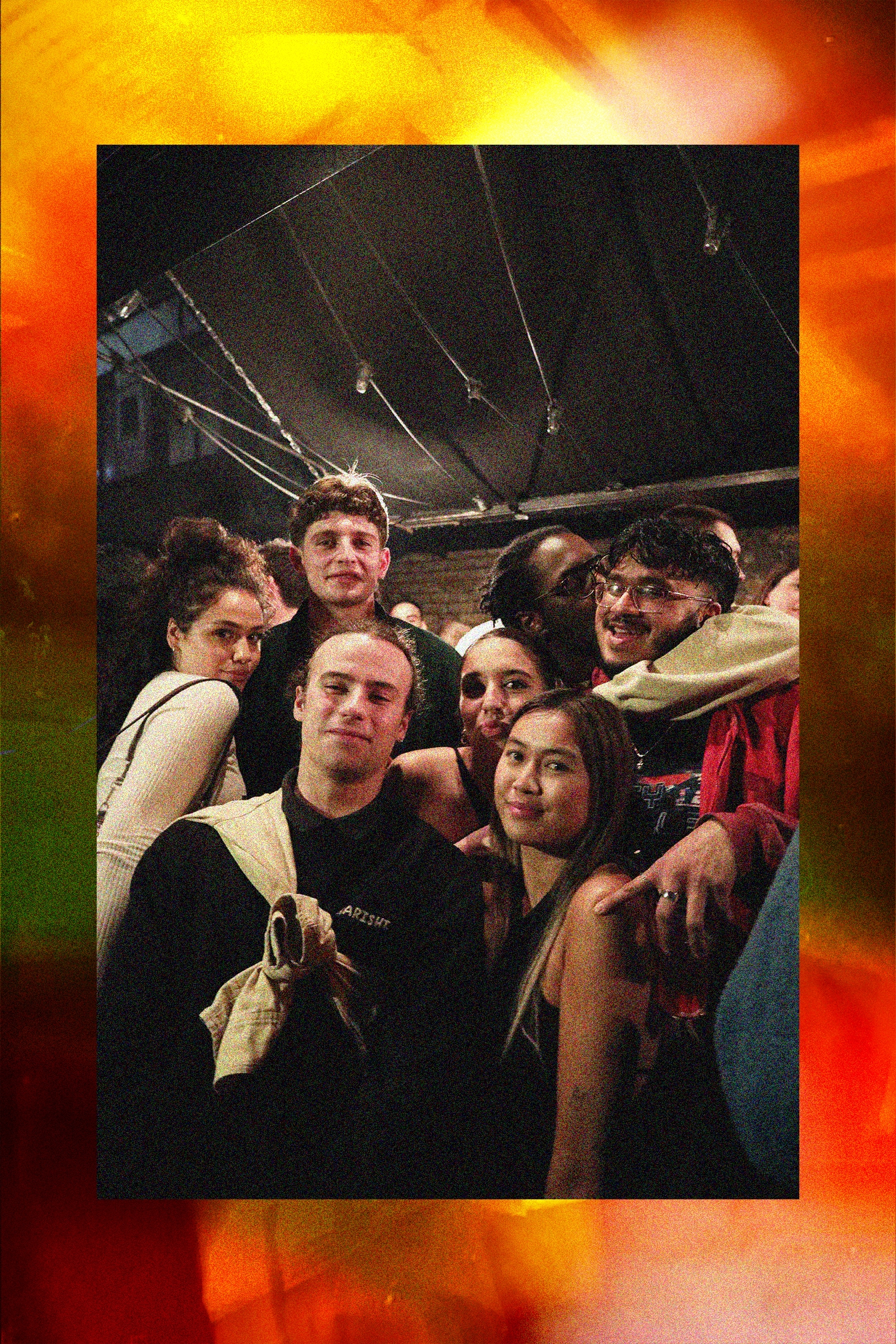
Arun-Joy, 26:
“I’m here tonight for the Daytimers! It means so fucking much. I only got into clubbing quite recently and not just because of them. It was a new discovery through Boiler Room and Mixmag actually. There was a Mixmag event with a full South Asian line-up for the South Asia week — I was just like: "this is fucking amazing." I don’t actually know who’s performing tonight, I just discovered that I love dancing. I moved to the UK eight/nine years ago, so it’s taken me a while to get into going out to clubs and having the confidence to get into the scene. I discovered that the South Asian scene does have something to offer and it’s been the entry point. Everybody loves dancing but it’s been about being around people who understand where that need comes from. Where the South Asian dancing culture originates from and what it means to us.”
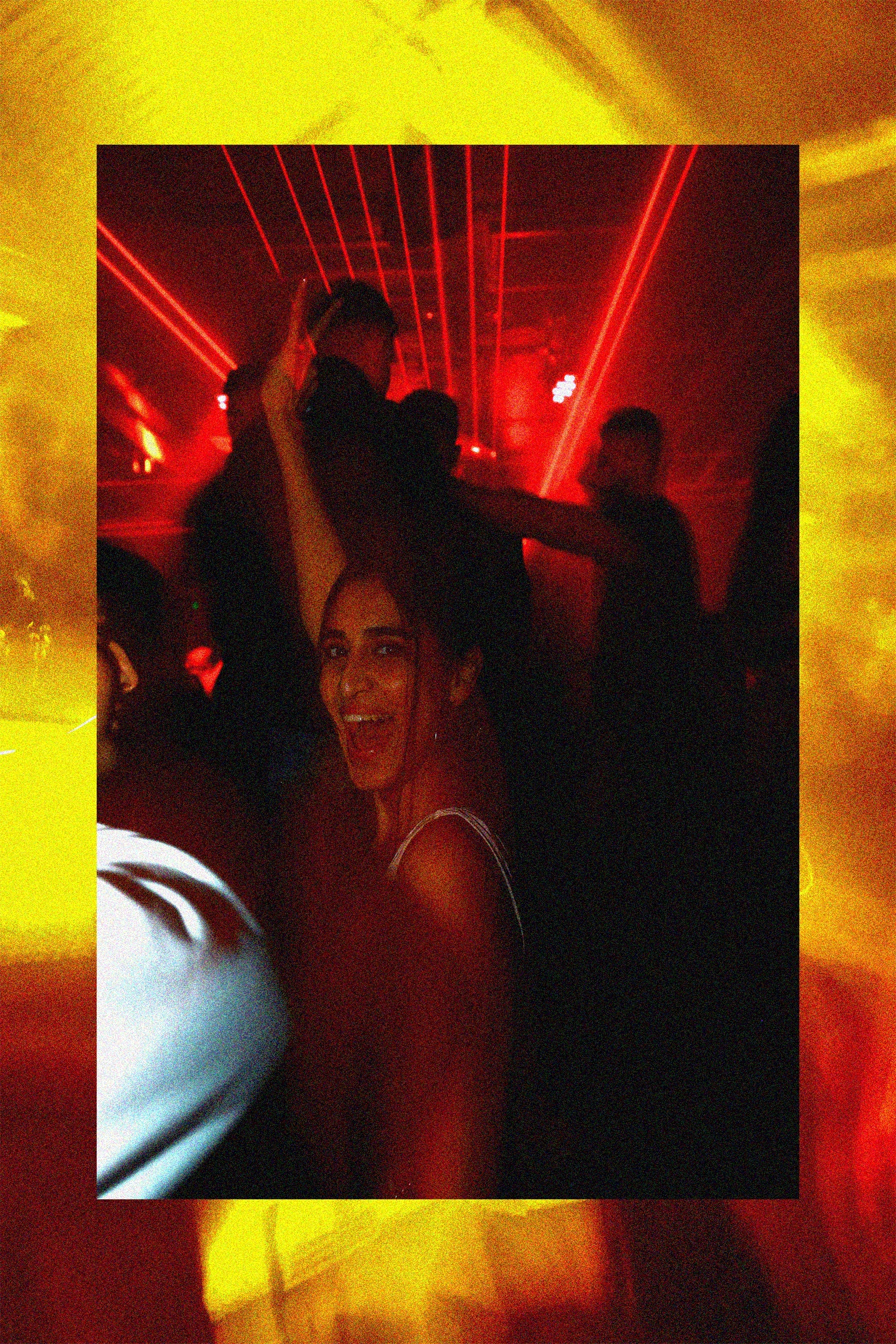
Samir (aka Nadi) and Naveed, 24:
“I’m here to party with my cousins. It’s a Daytimers thing. It’s just really fun. It’s a family affair innit. Brown music and culture wasn’t a mainstream idea of music. Everyone’s always engaging with music in their own way and we all entered music with our own different roots. But as soon as the visibility was there for us, everyone’s just been joining forces and coming together.”
“You’ll find nights here where Afrobeats and tabla would be playing side by side. Everyone comes together for a common cause which is music. But then ultimately, it’s the music we want to hear that we don’t often hear, and this is the place for it. Having a platform to fuse our heritage and culture through music with our UK roots in that way. Cross-cultural thing. Multiple cultures coming together.”
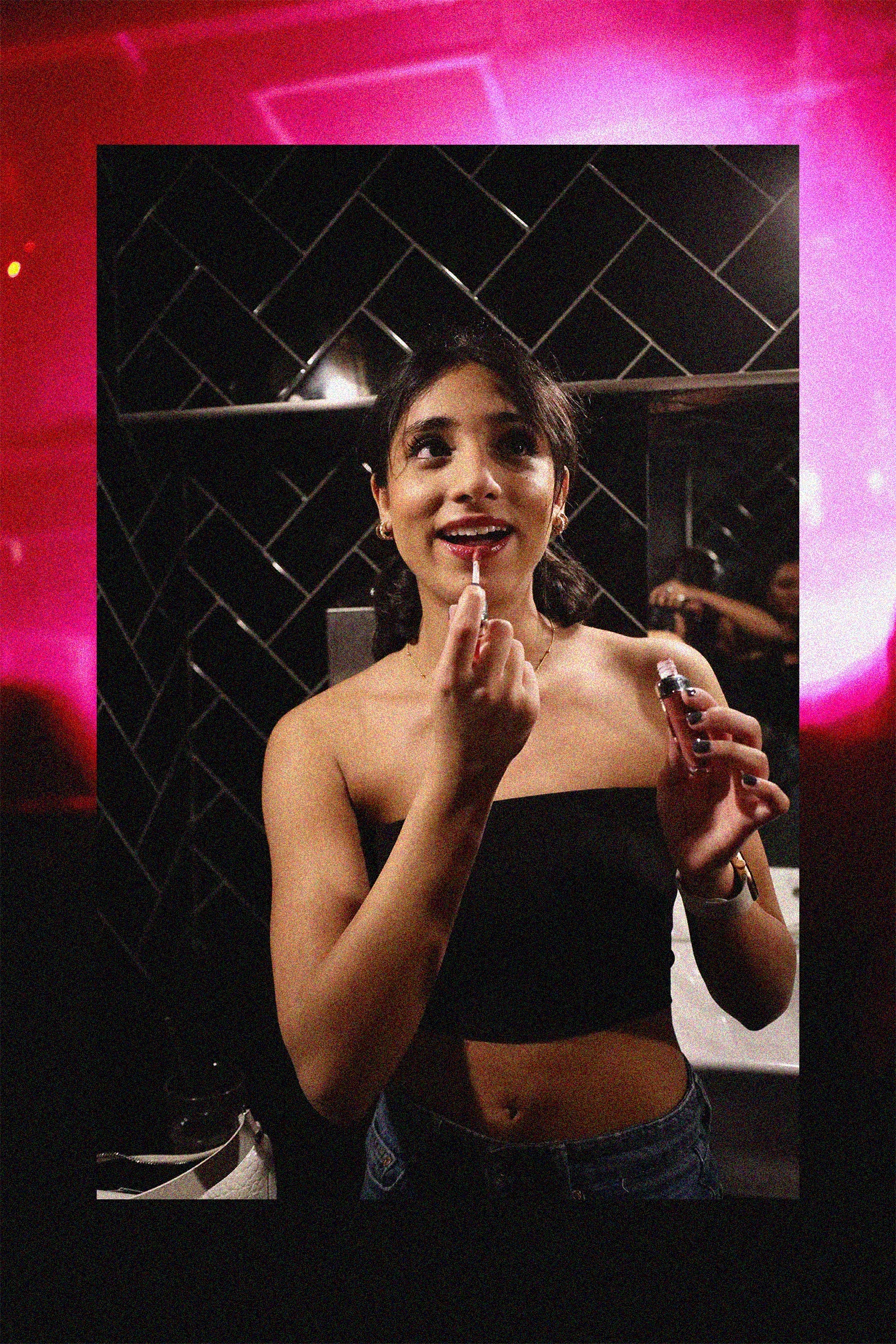
Anika, 25:
“It’s just seeing a group of South Asian DJs, I’ve always been that person like I must support my Brown community.”
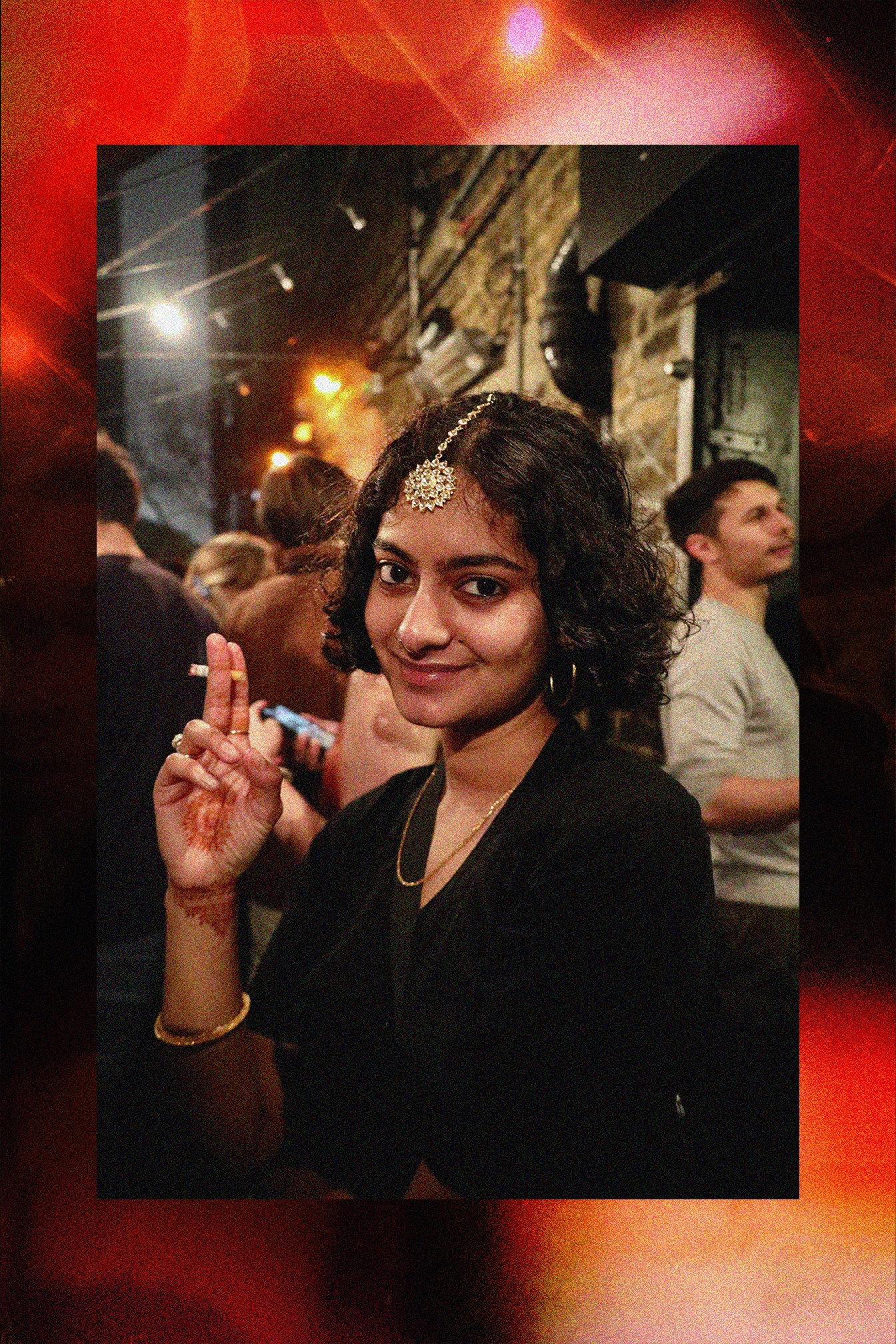
Ananya, 25
“I’m here because I’m South Asian and non-binary. I’m here tonight because I feel like there aren’t many events that are centred around South Asian culture. I’m wearing my saree blouse - we get such few opportunities to go all out and be proud of the heritage we come from. Might as well go all the way! Everyone is so happy to be here, I’ve spoken to other people has said that its just so nice to be here.”
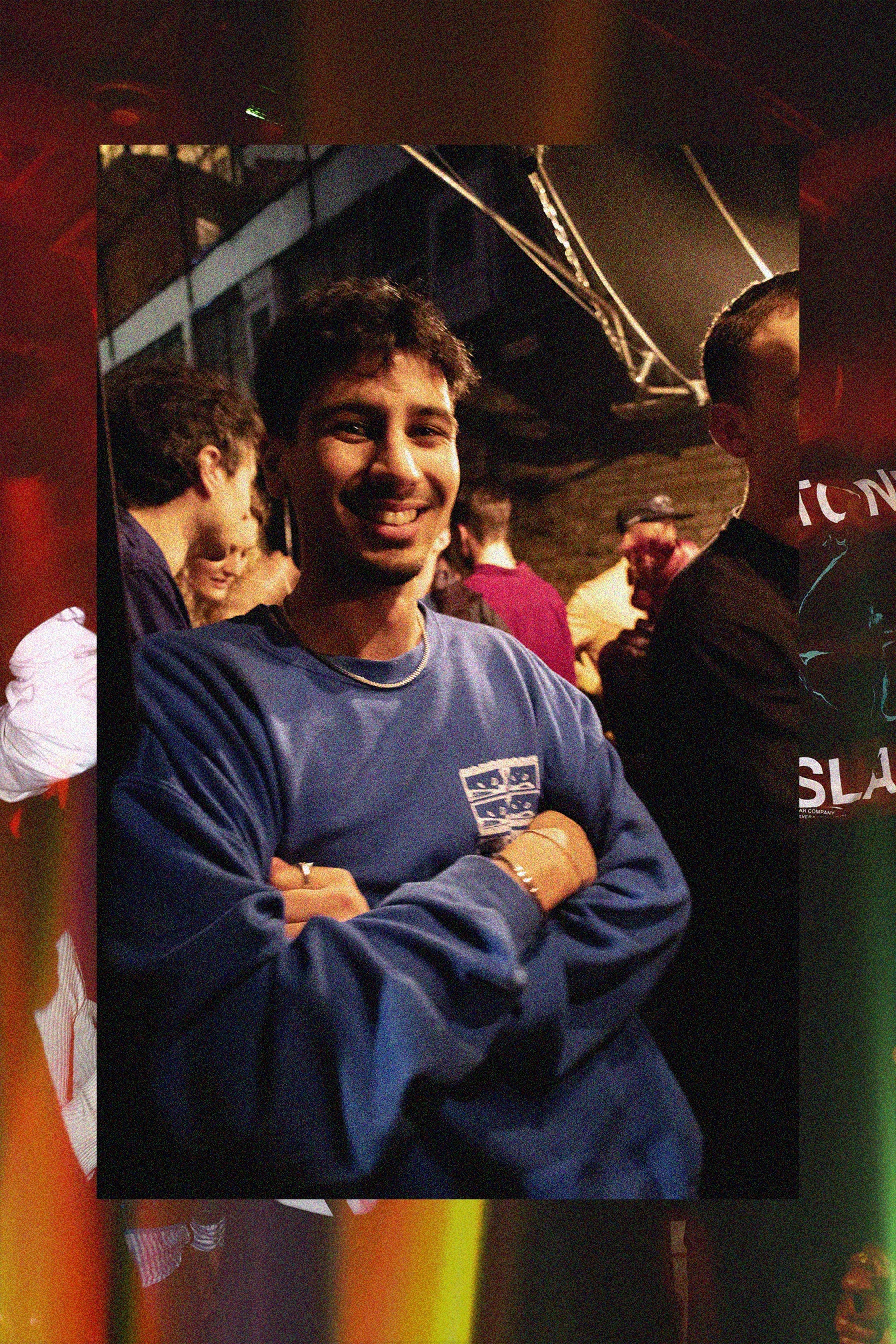
Hal, 23
“I wasn’t actually aware of the line up but I knew it was a South Asian night and it’s important because there aren’t enough nights like this. This is actually my first time at an event like this. It makes you feel very comfortable especially in a country like England which is mostly white, you go out and see people and often feel isolated. It’s so nice to just be around people you’re familiar with. Being around people who without saying words, just understand things without it being spoken. So, there needs to be more things like this and not just for South Asians. I grew up in London and this is the first night I’ve been to like this. Everyone here looks so happy and more than anything just comfortable and that’s so sick.”
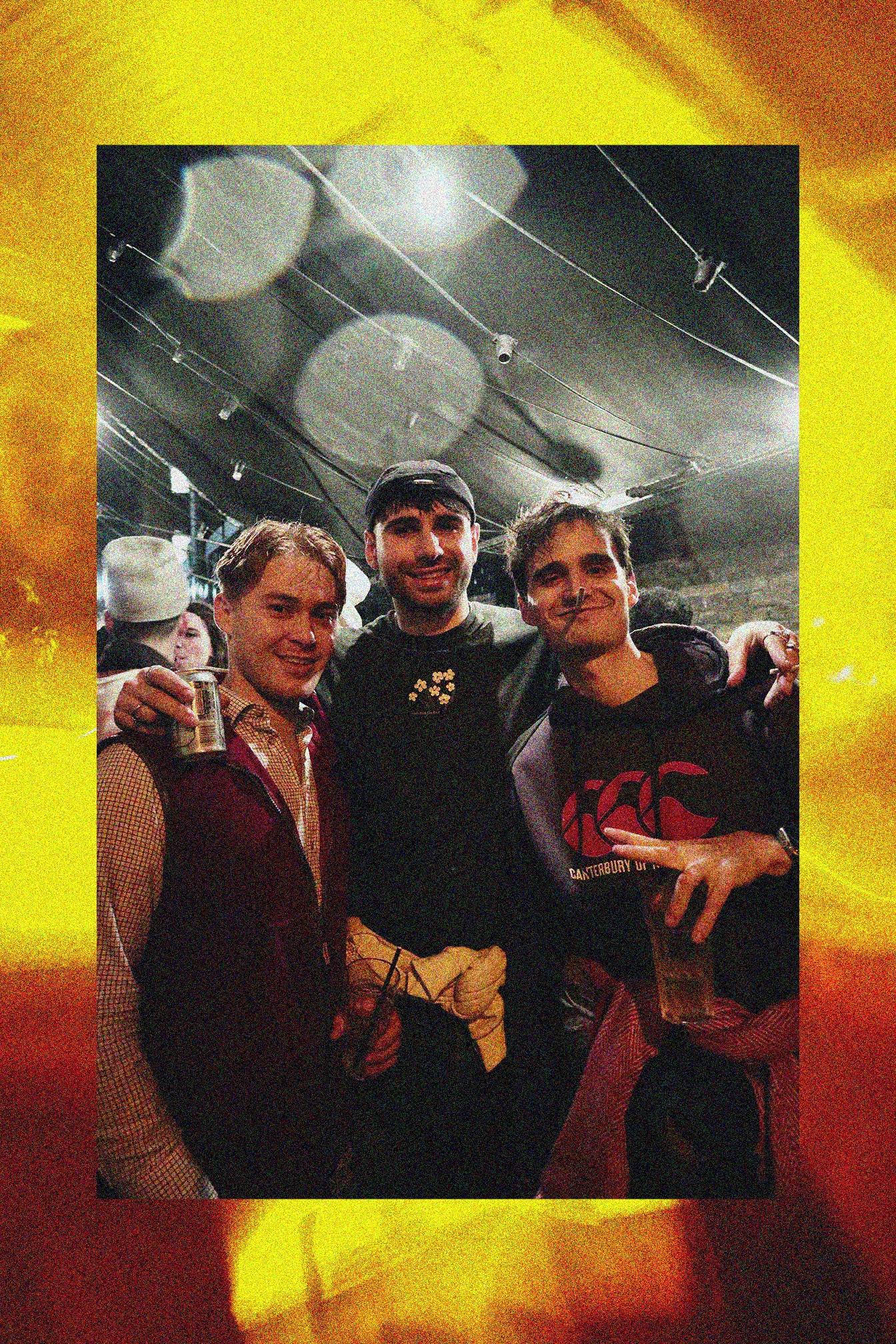
Ader, Javier, Edward (smoking area boys)
“This is Edward, he’s wearing a lethal red gilet. He’s here because I forced him and I bought his ticket. He still owes me money for it. But it’s all good.”
Read this next: What it's like to go clubbing as a British South Asian person
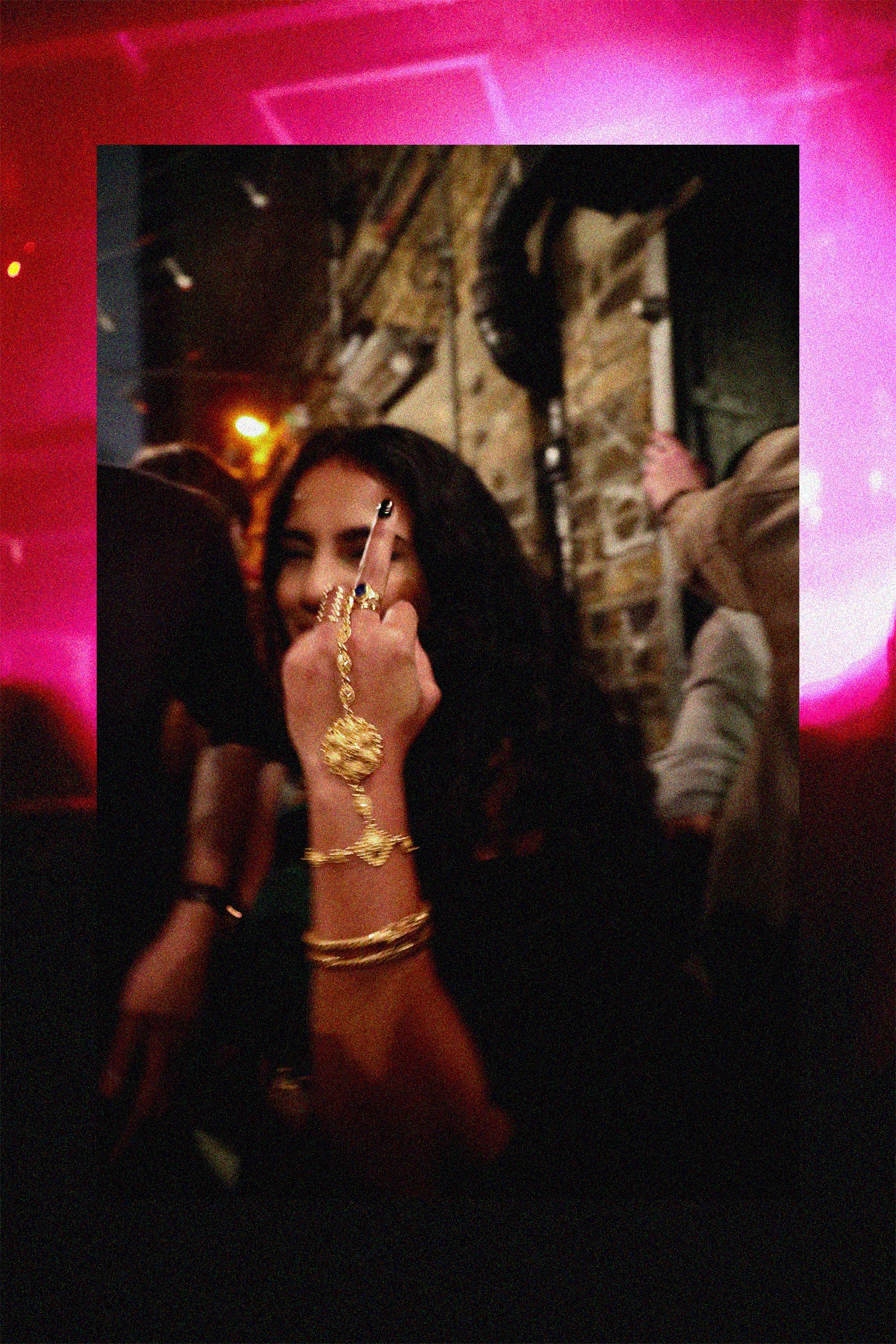
Esha, 28
“These Bollywood edits and those samples layered over 100 BPM just sound so good. Daytimers started because we didn’t get into clubs at night, we weren’t allowed out. So we would go out during the day. We’re taking over predominantly white spaces.”
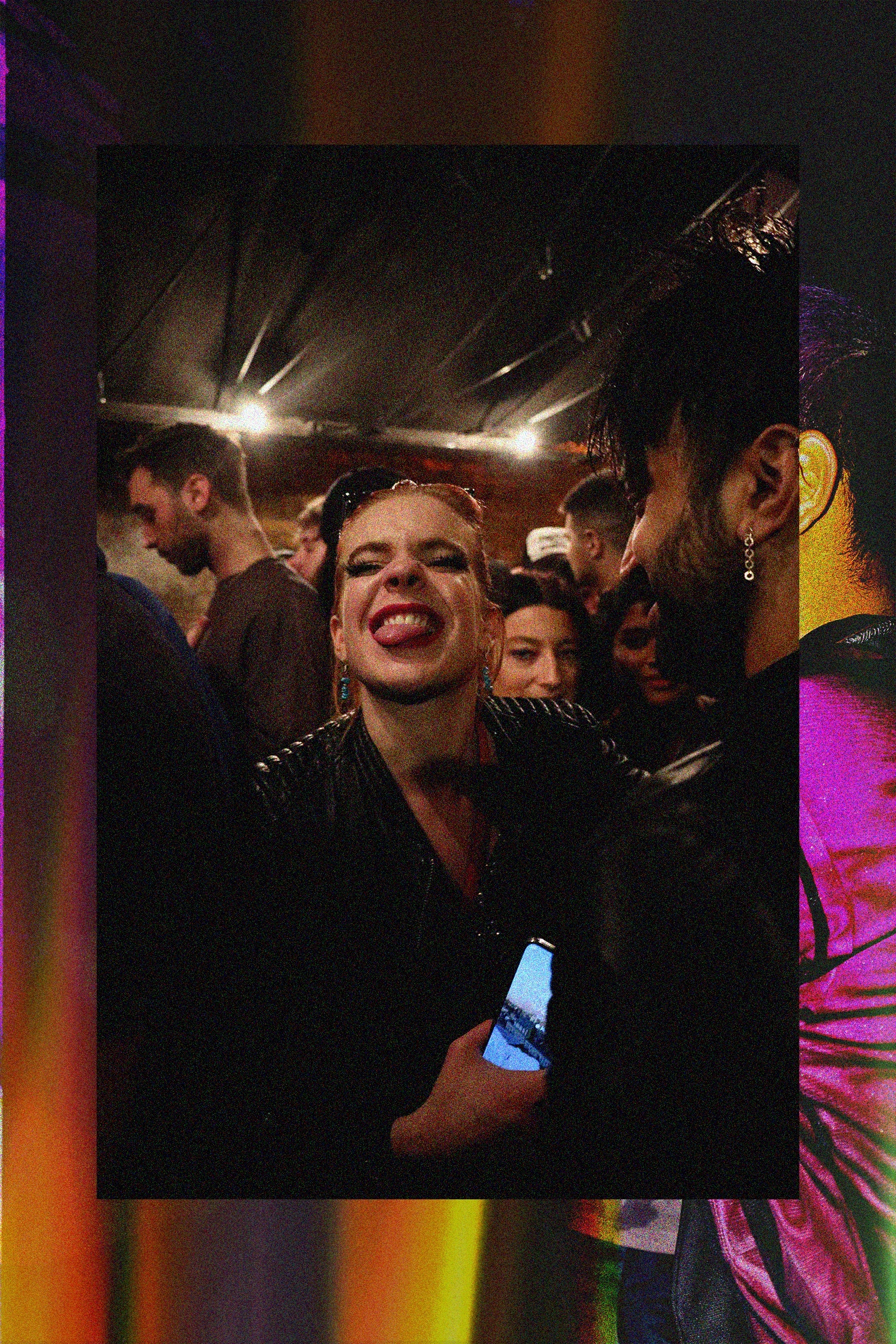
Zoya, 26
“There’s so much space for plurality. Clubbing is a way we can practice making space for each other and like any time I'm at any space where Daytimers are, you just have this shared acceptance and acknowledgement of one another, as you are in your context. I always feel so welcomed. Feel safe in this space and celebrate each other. We have moves in our roots! We’re a global people and this is a global music, we are at a really unique point in history!”
Read this next: What Do Your Parents Think?: 4 South Asian DJs share their family's reception to a music career
Vee Pandey is Mixmag's Digital Trainee, follow her on Twitter


